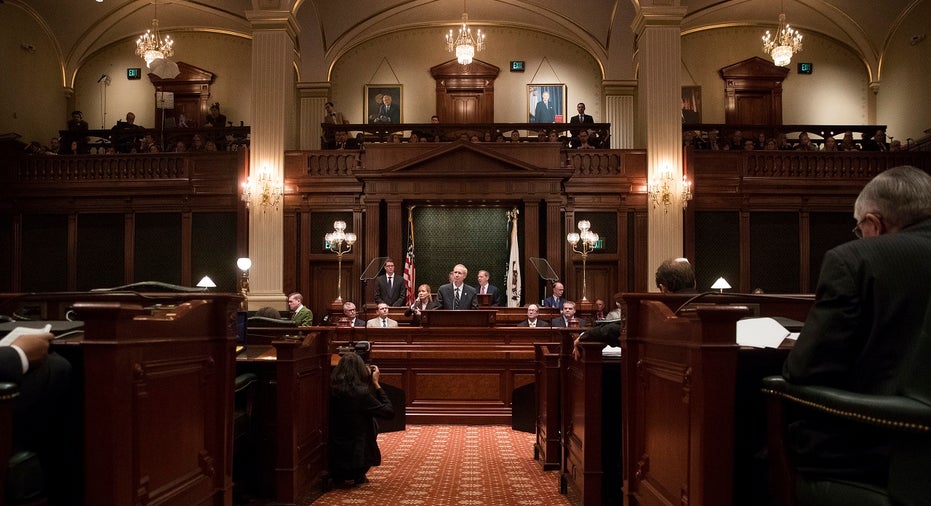Illinois passes budget, ends record impasse

Illinois' first full-year budget since 2015 became law on Thursday after the House of Representatives overrode the governor's vetoes of a $36 billion fiscal 2018 spending plan and $5 billion tax hike.
But the measures may not save Illinois from becoming the first-ever U.S. state with a junk credit rating.
The Democratic-controlled House was able to muster enough bipartisan votes to enact a trio of budget and revenue bills into law over Republican Governor Bruce Rauner's objection. The House's action, which was delayed by a hazardous material situation that prompted a nearly two-hour lockdown of the state Capitol in Springfield, followed successful Senate veto override votes on Tuesday.
The spending plan for the fiscal year that began on July 1 ends an unprecedented two-year budget drought that stemmed from an impasse between Rauner and Democrats who control the legislature.
"Our options are this or a financial meltdown," said State Representative Steven Andersson, a suburban Chicago Republican who voted in favor of the overrides.
As the nation's fifth-largest state operated during those years on spending ordered by courts and mandated by Illinois law, its unpaid bill backlog ballooned to about $15 billion.
Moody's Investors Service, which rates Illinois one notch above junk, placed the state under review on Wednesday for a potential downgrade, saying the budget plan may fall short in addressing the state's huge unfunded pension liability and the bill backlog.
The new budget aims to initially reduce the bill pile by only about a third, while banking on a projected $1.5 billion in savings from creating a hybrid retirement plan for new hires and other pension measures.



















